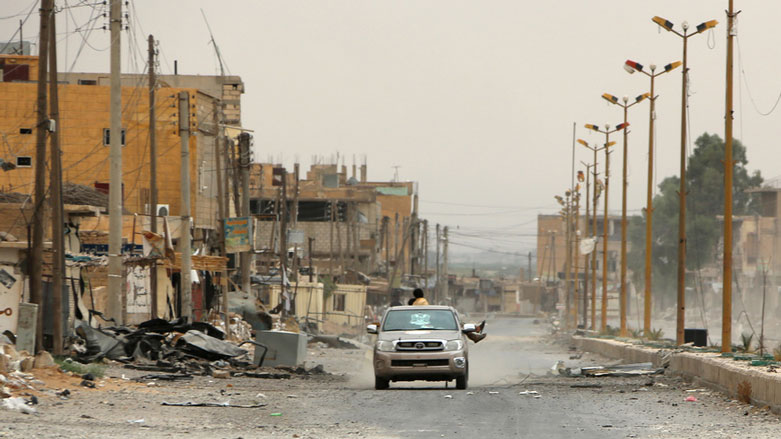Masked gunmen assassinate humanitarian worker in Syria’s Deir al-Zor

ERBIL (Kurdistan 24) – The UK-based Syrian Observatory for Human Rights (SOHR) on Tuesday said that unknown assailants assassinated a civilian working for a humanitarian organization in oil-rich province of Deir al-Zor.
“Two masked gunmen on a motorcycle targeted today a civilian working for a humanitarian organization, while driving his car on the outskirts of al-Dahla village in eastern countryside of Deir al-Zour, killing him instantly,” read a report published by SOHR.
According to local sources, the Syrian civilian had previously worked for a foreign non-governmental organization (NGO).
Thomas McClure, a Syria-based researcher at the Rojava Information Center (RIC), told Kurdistan 24 that, typically, it is “employees and individuals associated with the AANES (Autonomous Administration of North and East Syria) who are targeted by ISIS and other sleeper cells in Deir ez Zor and elsewhere in Northeast Syria.”
“That said, this attack shows that ISIS’ strategy to spread chaos, dissent and division in Deir ez Zor is wide. Oil truckers, women (rights) activists, priests, teachers, NGOs: all of those working to improve the region, whether with or alongside the AANES, are targeted,” he added.
On Wednesday, the “Women House” in the town of al-Soussa in Deir al-Zor province was targeted by an improvised explosive device (IED) without causing any casualties, SOHR reported. One day later, unknown gunmen targeted a Syrian Democratic Forces (SDF) patrol in the Khatilah area of the city of al-Busayrah, located in the eastern countryside of Deir al-Zor.
Although the SDF and US-led Coalition announced the defeat of the so-called Islamic State’s caliphate in March 2019, sleeper cell attacks by the terrorist group persist in territory liberated by the SDF in what appears to be a deliberate campaign to destabilize the area.
According to a monthly report of the RIC published in early August, 79 percent of Islamic State attacks in July occurred in Deir al-Zor, while all of the attacks outside the province were located in either Raqqa or Manbij.
Moreover, unrest recently increased in Deir al-Zor after the assassination of tribal leaders in late July. The SDF and the Coalition held several meetings with tribal leaders in recent weeks to help de-escalate the situation.
SDF spokesperson Kino Gabriel told Kurdistan 24 that there are local and regional players such as Iran, Turkey and the Syrian regime trying to push tribes in Deir al-Zor, South of Hasakah and Raqqa, to rise against the SDF.
He said most of these sleeper cells that are carrying out attacks are linked to the Syrian regime, Iran, or the Islamic State. “Along the Coalition, we as SDF we try to ease and calm down the situation.”
During a recent local meeting organized by the Syrian Democratic Council (SDC), locals from Deir al-Zor criticized the security situation since the area’s liberation.
“We are very grateful for this (liberation by the SDF). But afterwards, the security situation remains very bad, many assassinations,” a local Arab leader from the Egidat tribe said during the meeting, according to a report published bv the RIC.
“There is 20 km corridor where everything is chaos, external forces create ‘fitne’ (internal strife) to attack the AANES and SDF. Forces here must be strengthened to deal with this. Moreover, poverty in (the) region must be addressed,” Gabriel said.
“Region has great [oil] wealth but people don’t see benefit of this. Hospitals are empty of medicines. People working in local administration are not accepted by our society.”
Gabriel told Kurdistan 24 that local residents have legitimate concerns and that there will, in the future, be more focus “on the needs of people of Deir ez-Zor, and work needs to be done regarding infrastructure and economic situation. We are going to work with civil councils in those areas to provide services to them.”
Editing by John J. Catherine
